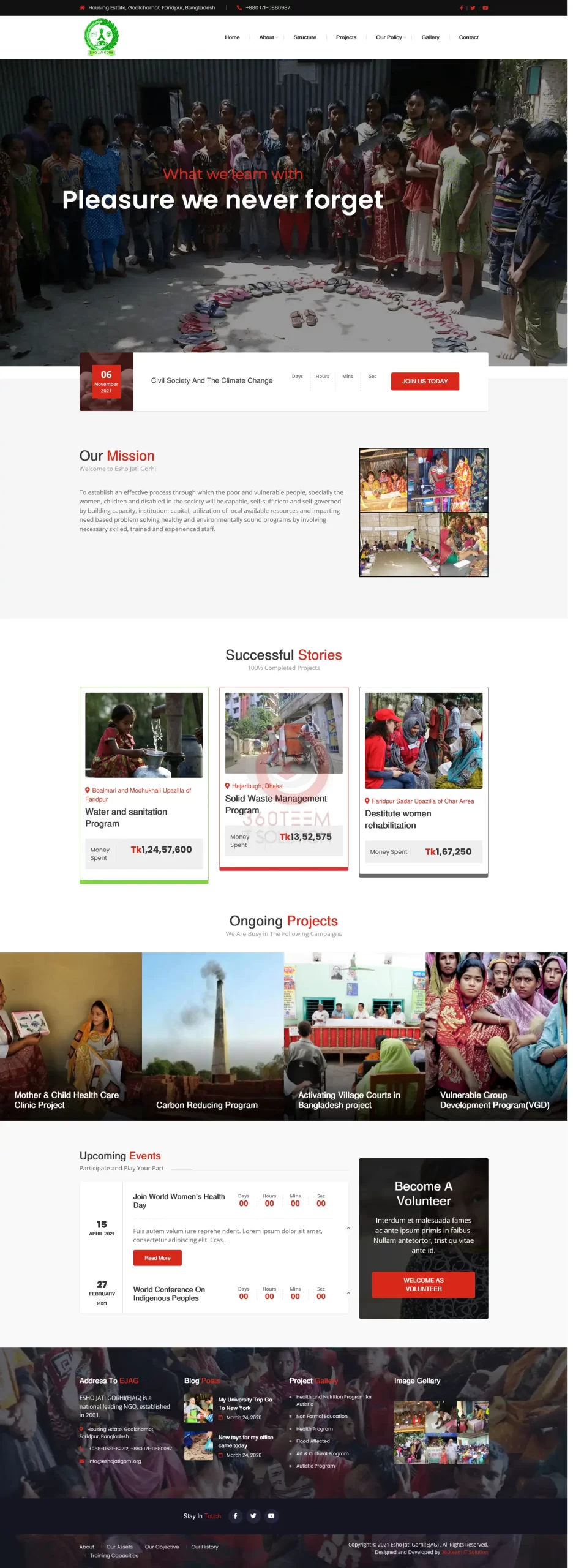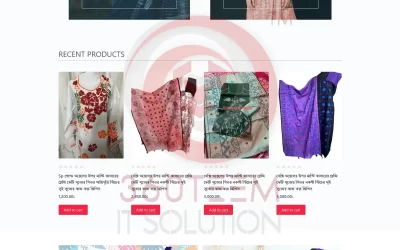ESHO JATI GORHI (EJAG) is a woman headed, women led and women managed organization. It is by nature a non-government, non-profit, non-political and non-religious development organization. EJAG is committed to reduce illiteracy, social injustice, human rights violations, gender discrimination, poverty, health hazard & environmental management to ensure better society with justice, good governance, harmony, capable and skilled manpower and human rights. It works in rural and urban areas targeting sustainable social change that will contribute in ensuring a better life and livelihoods for the vulnerable people with special emphasize to women, disables, children, disables, landless, rootless, floating, cleaners’ and autism children in Faridpur district of Bangladesh. Faridpur is situated by the bank of the mighty river Padma. Once open a time people used to afraid by hearing the roaring of the great Padma. Though the scenario is changed now but still during rainy reason the Padma severely erode its bank and make a lot of people helpless and landless. About thirteen unions of Faridpur District are situated on the bank of the river Padma. These are fully desert areas due chars, frequent river erosion, over floods and other disasters. Farmers cannot cultivate. They do not get good crops in these areas. To remove these sufferings of the people, a group of dedicated social workers of Faridpur established EJAG in 2001 under the guidance of Ms. Nazma Akter, an educated, devoted and dedicated woman social worker and activist of Faridpur. EJAG works by adopting the target group development approach and most of the groups are associated with women members. It implements all its activities for the purpose of the protection of human rights and violence against women of the target women, disables and children. It continues all its efforts to fulfill it’s commitments through mainstreaming gender in a participatory development process. It collaborates with different local, regional, national and international NGO’s, local administrations and Government departments in realizing their common goal through implementing sustainable rights based, and livelihood restoration of the poor and disadvantaged men, women, disables and children.



